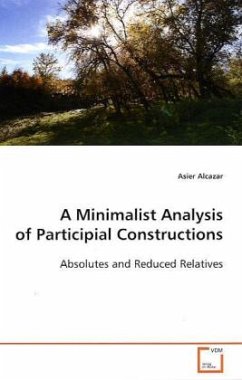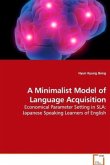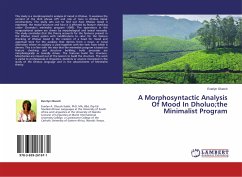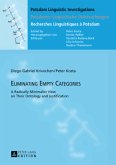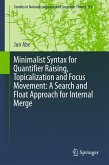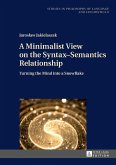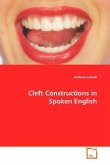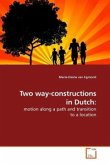This book proposes that past participial
constructions are the expressed complement of vP/CP
phases (Chomsky 2001, 2005). If correct, this calls
for a minimalist reanalysis of non-finite structures
as phases, given the possibility to end a derivation
at intermediate Spell-Outs. The analysis is based on
an extensive survey of participial constructions
across languages and historical periods extracted
from diachronic and contemporary corpora as well as
the specialized literature. Participial
constructions present exceptional characteristics.
Absolute participials test for unaccusativity, as
they ban unergative verbs (Perlmutter 1978, Rosen
1983, Belletti 1990). Participial relatives also
share this peculiarity (Williams 1975, Burzio 1986,
Levin & Rappaport 1986). Additionally, they behave
in a manner unexpected of relatives. The
Accessibility Hierarchy (Keenan & Comrie 1977)
predicts that a relative clause should be able to
relativize subjects (e.g., present participles). In
contrast, past participles relativize
passive/unaccusative subjects only. Previous
analyses had focused either on absolute participials
or participial relatives, but not both.
constructions are the expressed complement of vP/CP
phases (Chomsky 2001, 2005). If correct, this calls
for a minimalist reanalysis of non-finite structures
as phases, given the possibility to end a derivation
at intermediate Spell-Outs. The analysis is based on
an extensive survey of participial constructions
across languages and historical periods extracted
from diachronic and contemporary corpora as well as
the specialized literature. Participial
constructions present exceptional characteristics.
Absolute participials test for unaccusativity, as
they ban unergative verbs (Perlmutter 1978, Rosen
1983, Belletti 1990). Participial relatives also
share this peculiarity (Williams 1975, Burzio 1986,
Levin & Rappaport 1986). Additionally, they behave
in a manner unexpected of relatives. The
Accessibility Hierarchy (Keenan & Comrie 1977)
predicts that a relative clause should be able to
relativize subjects (e.g., present participles). In
contrast, past participles relativize
passive/unaccusative subjects only. Previous
analyses had focused either on absolute participials
or participial relatives, but not both.

